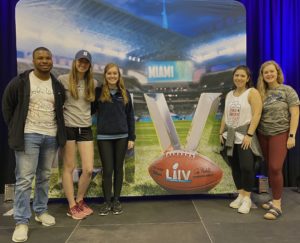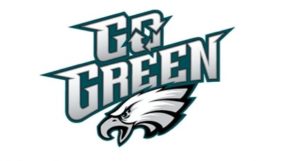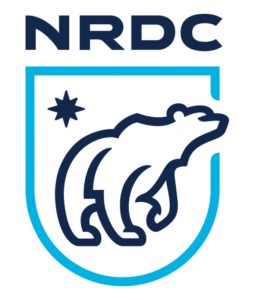
Sports leagues pushing for greater sustainability
As individuals take steps toward a more sustainable planet, major sports leagues around the globe are pushing for a more sustainable future. According to […]






NFL Green’s Jack Groh and Jacquie Weisblum from the Host Committee discuss environmental impact, fan engagement and getting sponsors invested
On Sunday, the eyes of America will be on Miami’s Hard Rock Stadium, where the Kansas City Chiefs will take on the San Francisco […]




Jack and Susan Groh, directors of NFL Environmental Program to present for Friday’s Sustainability Showcase
For more than two decades, the Super Bowl has been recognized as the “greenest” professional sports championship in America and each year, the NFL […]



What started with a blue recycling bin under each employee’s desk in 2003 has grown into a company-wide sustainability program that works year-round to reduce the team’s environmental footprint. With the help of partners and fans, the Philadelphia Eagles have been able to develop a multi-year curriculum and action plan that incorporates green energy production, recycling, composting, energy efficiency and reforestation, among other ventures.







In October 2010, the Amway Center became the first LEED Gold–certified designed and constructed professional basketball arena in North America. Today it remains the only NBA arena to be awarded LEED Gold certification within the New Construction standard. The arena uses approximately 25 percent less energy and 40 percent less water than arenas of similar size and type, saving the team hundreds of thousands of dollars each year—including close to $700,000 annually in energy costs alone. As a sports industry leader in advanced green building approaches for venue construction, the Amway Center is a local and national role model for efficiency and environmental stewardship. The Magic have worked hard to spread the green message embodied in their arena to fans nationwide, including through their role as hosts of the 2012 NBA All-Star Game.





Levi’s stadium LEED Gold certification for operations and maintenance of existing building.
DetailsThe San Francisco 49ers’ new stadium is the first professional football stadium in the United States to achieve LEED Gold certification under the U.S. Green Building Council’s New Construction standard. Environmentally intelligent features at Levi’s Stadium include a 27,000-square-foot green roof, efficient lighting and plumbing fixtures, high-efficiency HVAC systems, recycled building materials, electric vehicle charging stations, public transit access, and bicycle parking. Their other main focus is providing greener food to their fans through their menu options along with organic and local ingredients.





The Philadelphia Eagles have been pioneers in the greening of professional sports operations and supply chains since establishing their Go Green program, with the help of the Natural Resources Defense Council (NRDC), back in 2003. From switching to recycled paper products nearly a decade ago to installing the most extensive onsite renewable system of any U.S. sports stadium in 2012, the Eagles work to promote the social, ecological and financial benefits of going green.




Thanks to the widespread public and professional interest in sustainability in the Northwest, environmental stewardship was built into CenturyLink Field even before the first U.S. sports greening programs were established. Back in 2000, 35 percent of the concrete from the Kingdome was recycled onsite to construct Seahawks Stadium (which has since been renamed “CenturyLink Field”).



Veterans plant coral off Florida as NFL pursues environmental projects around Super Bowl
From tree plantings to park cleanups, NFL Green aims to use the big game in Tampa as a way to promote sustainability. NFL Green, […]




IFAF to drive sustainability
The International Federation of American Football, IFAF, has partnered with Play It Green as it looks to set new standards in meeting its sustainability vision. The global […]
